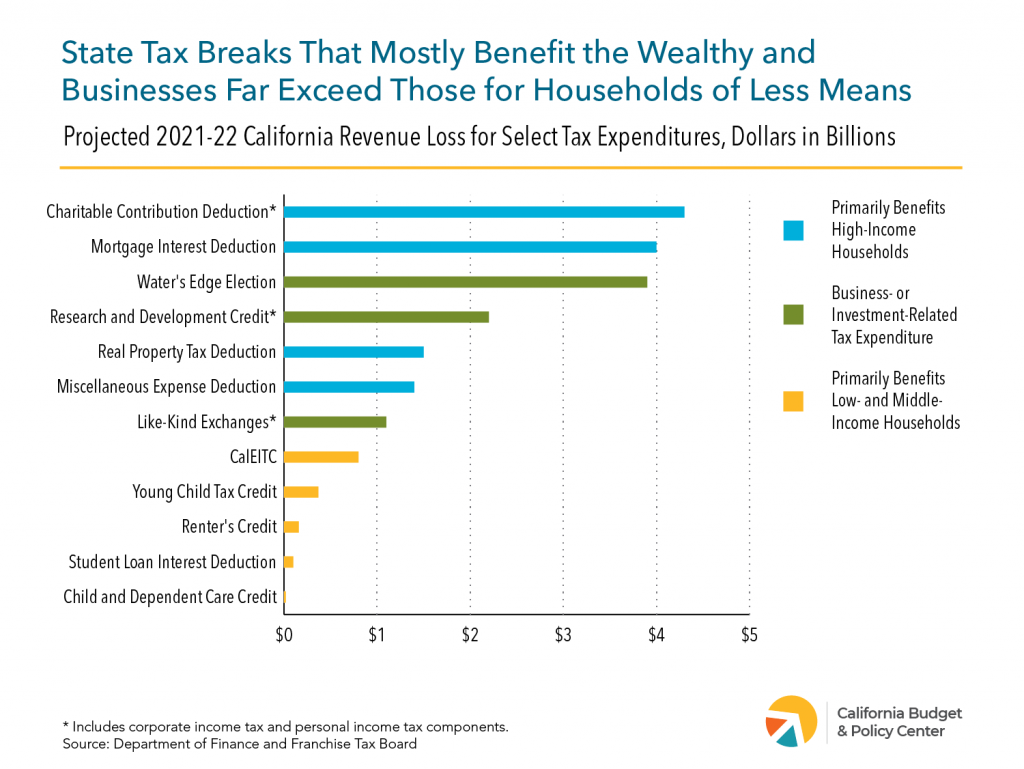California will lose an estimated $69.2 billion in state General Fund revenues in 2021-22 to personal and corporate income tax breaks — or “tax expenditures.”1Department of Finance, Tax Expenditure Report 2021-22, 5, https://www.dof.ca.gov/Forecasting/Economics/Tax_Expenditure_ Reports/documents/2021-22%20Tax%20Expenditure%20Report.pdf. Many of the state’s largest tax breaks primarily benefit higher-income households and businesses, while just a fraction of the state’s tax breaks are targeted to Californians with low and middle incomes.2For a more detailed examination of California’s tax expenditures, see Kayla Kitson, Tax Breaks: California’s $60 Billion Loss (California Budget & Policy Center, January 2020), https://calbudgetcenter.org/resources/tax-breaks-californias-60-billion-loss/. This revenue loss equals approximately one-third of the state’s 2021-22 General Fund budget and represents dollars the state could otherwise use to support Californians to live, work, and thrive across the state.
The state will forgo more than $18 billion in revenue due to just four itemized deductions that mostly benefit higher-income households and three tax incentives for businesses and investors. In comparison, California will spend less than $1.5 billion on tax breaks that primarily benefit low- and middle-income households, including the California Earned Income Tax Credit (CalEITC), the Young Child Tax Credit, the Renter’s Credit, the Student Loan Interest Deduction, and the Child and Dependent Care Credit.

more in this series
See our 5Facts: California’s Tax & Revenue System Isn’t Fair for All to learn how elements of California’s tax and revenue system further or impede the goals of economic and racial equity for households, communities, and the state.

Some of California’s tax expenditures also widen racial income and wealth disparities. Since Black and Latinx households are underrepresented in higher-income groups due to legacies of racist policies and ongoing discrimination, these households benefit less than white households from tax breaks skewed toward richer households. Additionally, many tax breaks reward wealth-building activities such as homeownership and retirement savings, to which households of color have less access.
When policymakers choose to spend public dollars via tax expenditures that largely benefit wealthy Californians and businesses, they are also choosing not to spend those dollars to help individuals and families who struggle with the costs of housing, child care, education, and other necessities. Eliminating or scaling back these tax expenditures would free up revenue that could be used to invest in resources that broaden economic security and create wealth and opportunity for more Californians.


